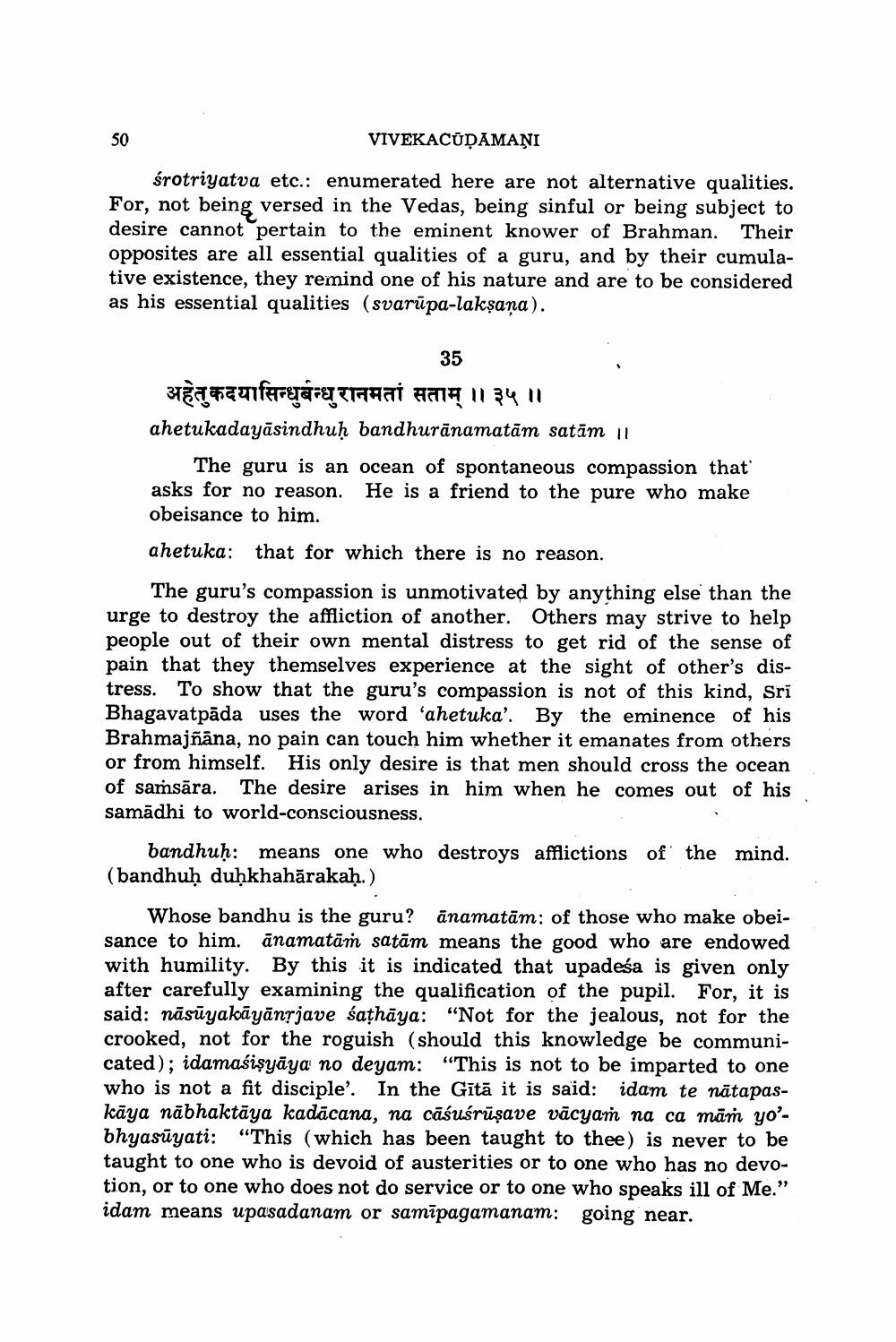________________
VIVEKACŪDAMAŅI
śrotriyatva etc.: enumerated here are not alternative qualities. For, not being versed in the Vedas, being sinful or being subject to desire cannot pertain to the eminent knower of Brahman. Their opposites are all essential qualities of a guru, and by their cumulative existence, they remind one of his nature and are to be considered as his essential qualities (svarūpa-lakṣaṇa).
35
अहेतुकदयासिन्धुर्बन्धुरानमतां सताम् ॥ ३५ ॥ ahetukadayāsindhuḥ bandhurānamatām satām 11.
The guru is an ocean of spontaneous compassion that asks for no reason. He is a friend to the pure who make obeisance to him.
ahetuka: that for which there is no reason.
The guru's compassion is unmotivated by anything else than the urge to destroy the affliction of another. Others may strive to help people out of their own mental distress to get rid of the sense of pain that they themselves experience at the sight of other's distress. To show that the guru's compassion is not of this kind, Sri Bhagavatpāda uses the word 'ahetuka'. By the eminence of his Brahmajñāna, no pain can touch him whether it emanates from others or from himself. His only desire is that men should cross the ocean of saṁsāra. The desire arises in him when he comes out of his samādhi to world-consciousness.
bandhuḥ: means one who destroys afflictions of the mind. (bandhuh duḥkhahārakah.)
Whose bandhu is the guru? ānamatām: of those who make obeisance to him. ānamatām satām means the good who are endowed with humility. By this it is indicated that upadeśa is given only after carefully examining the qualification of the pupil. For, it is said: nāsūyakāyānsjave sathāya: "Not for the jealous, not for the crooked, not for the roguish (should this knowledge be communicated); idamaśişyāya no deyam: “This is not to be imparted to one who is not a fit disciple'. In the Gītā it is said: idam te nātapaskäya nābhaktāya kadācana, na cāśusrüşave vācyam na ca mām yo'bhyasūyati: “This (which has been taught to thee) is never to be taught to one who is devoid of austerities or to one who has no devotion, or to one who does not do service or to one who speaks ill of Me." idam means upasadanam or samīpagamanam: going near.




